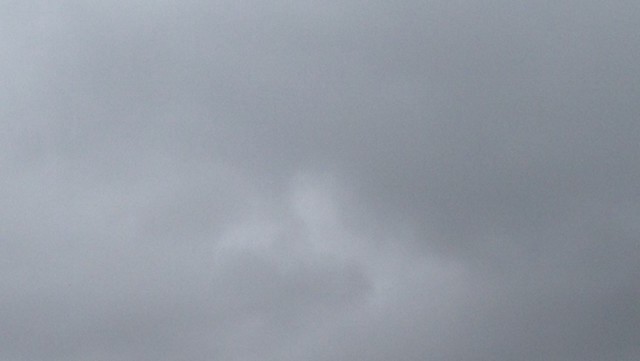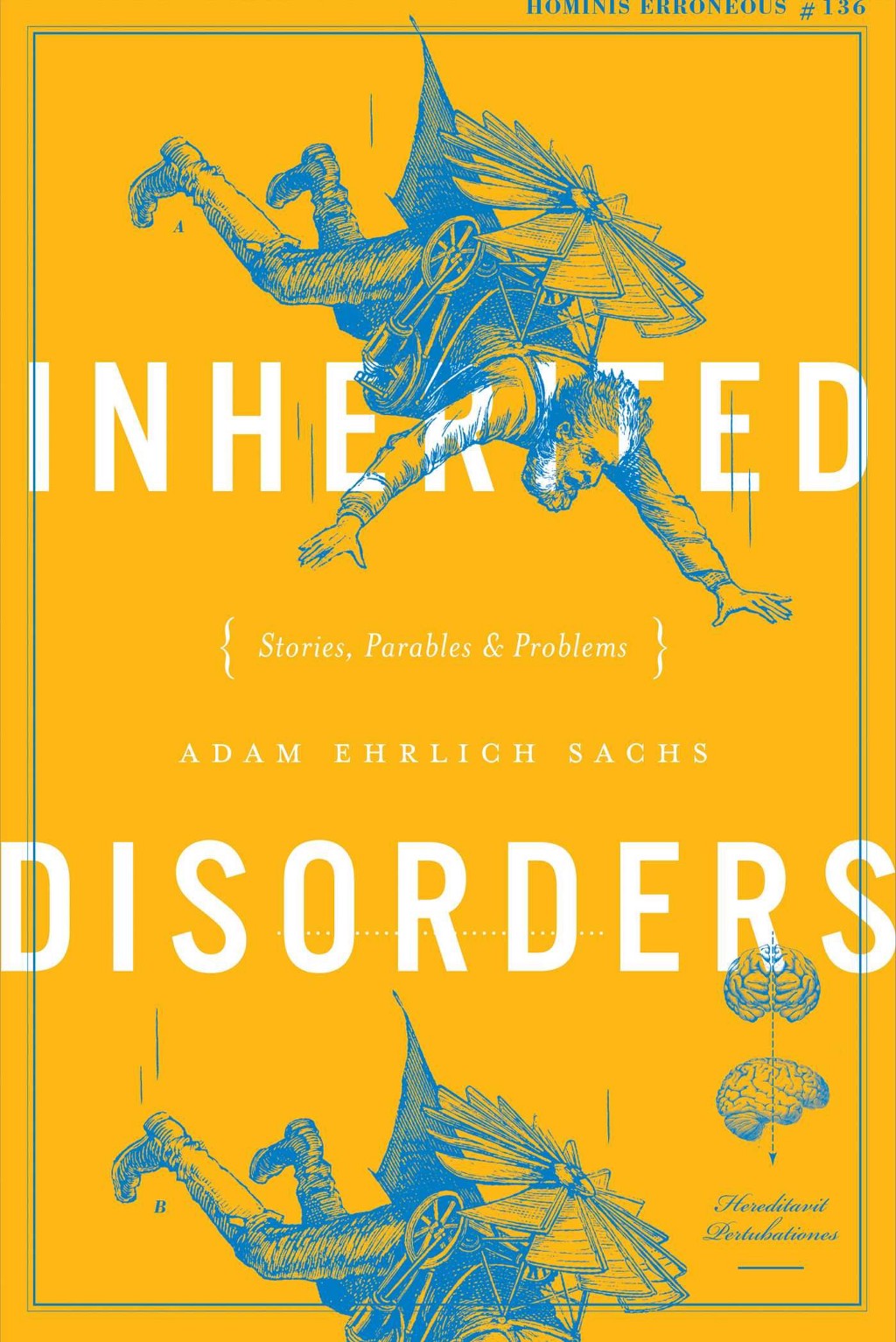Band Back
Here’s a nice little claymation video to go along with Radiohead’s new single, “Burn The Witch.” (Previously.)
Blog Closes
“There’s always space to do whatever you want. You won’t get as much attention, but fuck attention. Fight for integrity. Now everyone has a TinyLetter instead of a blog. As soon as the first writer got a book deal for a TinyLetter, everyone’s TinyLetter just became book-deal bait, written the same way. This weird conformity just takes over as soon as the possibility of money or access or respectability comes up. That’s disappointing.”
— This is what I’ve chosen to pull out of Boris Kachka’s interview with Jessa Crispin, who is shutting down her antediluvian web log Bookslut, but I could really have pulled out almost anything, because the entire interview is so blunt and pointed that it makes you cringe, cheer and feel ashamed of yourself all at the same time. Read if you dare.
Elka, "BBX1999"
If you can just hold out until noon or so everyone will have moved on and you won’t have to hear about the Met Ball again for a whole year. I know you can do it. Enjoy.
New York City, May 1, 2016

★ The rain filled the morning with dull rain noise. The sunscreen would sit unused again; it took a lamp to chase the dimness from the bedroom in midafternoon. At some point, maybe multiple points, the rain stopped falling. It was possible to run errands on the half-dry pavement. Ghastly feathery leaves were sprouting directly from the trunk of a street tree. A drizzle gathered. Unable to settle on raining further or not raining further, the dampness gathered into a blurry fog.
Maybe Aliens Invented Bitcoin
A revision to the equation which calculates the possibility of the existence of intelligent life in the universe “implies that other intelligent, technology-producing species very likely have evolved before us,” although given the popularity of angioplasty-induction repository Allrecipes.com, it might be more appropriate to debate whether or not intelligent life existed thereafter.
Islands, "No Milk, No Sugar"
Nicholas Thorburn, of the lamented Unicorns and whose City of Quartz (as Nick Diamonds; Jesus, guy, pick a brand and sit on it) was one of 2015’s best records, has two new albums out with his Google-unfriendly band Islands. I am normally averse to double-album syndrome, especially when it presents as a Lucky Town/Whatever The Other Record That Wasn’t Called Lucky Town Was symptom, but I listened to both of them over the weekend and they are definitely very good. I guess one is more electronic and one is more “natural”? Whatever, here are tracks from both, enjoy.
Words Feel Me
If I were the one telling people what words not to use I would choose “late capitalism,” “gendered,” “liminal,” “bonkers,” and especially “performative” or any other jackoff Judith Butler bullshit people put out when they want to preempt an argument but sound like they went to college while doing it. Still, some UNC History professor thinks we should stop saying “I feel like,” and as the man who wrote the law establishing that the worst thing is knowing what everyone thinks about anything, I cannot but nod in agreement. Seriously, though, get the fuck out of here with “performative,” you empty-headed fraud. We’re all laughing at you every time you say it.
Pop Culture
by Miranda Popkey

“Order Matters,” the eighty-first story in Adam Ehrlich Sachs’s debut collection, Inherited Disorders, tweaks a familiar tale of paternal disappointment in filial underachievement. Less than a hundred words long, the narrative focuses so narrowly on the son’s perception of his contextual failure that the father at once looms enormously large and disappears completely. “His great-great-grandfather was a Belarusian shoemaker,” Sachs begins. “His great-grandfather was a music teacher. His grandfather was a respected attorney. His father reached the very pinnacle of the medical profession, and just days ago was named director of the National Institutes of Health. He himself, like his great-grandfather, was a music teacher. But it is one thing to teach music when your father is a Belarusian shoemaker, and quite another to do so when your father runs the NIH. Order,” Sachs concludes, “as he put it in his suicide note, matters.”
Sachs is not a music teacher, but his paternal grandfather was a respected labor attorney, and his father is the “visionary economist” Jeffrey Sachs. In the eighties and nineties, the role Dr. Sachs played in helping Poland, Slovenia, Estonia, and the former Soviet Union transition from communism to a market economy, earned him the moniker “Dr. Shock” (after the economic “shock therapy” he administered). Between 2005 and 2015, though his Millennium Villages Project, Dr. Sachs used seventy-nine underdeveloped African towns as test cases for his anti-poverty economic theories. Last year, he participated in a conference on climate change held at the Vatican. The titles and achievements he’s accumulated — Director of The Earth Institute at Columbia; Special Advisor to United Nations Secretary-General Ban Ki-moon; author of three New York Times bestsellers, one of which includes a foreword by Bono — might make even a director of the NIH feel slightly inadequate.
But Jeffrey Sachs’s son is hardly about to kill himself. When I met Adam at a bar near the Somerville, Massachusetts home he shares with his wife (no children yet), his anxiety, though palpable (he is a more assiduous starter than he is a finisher of sentences), did not seem terminal. Sachs’s unnamed stand-in writes a suicide note; he has written a hundred and seventeen short fictions about sons dogged by the long shadows cast by their fathers and father figures.

Sachs didn’t start worrying about whether he would measure up to his father until he was an undergraduate at Harvard, where his father both attended and taught, earning tenure at twenty-eight — at which point he began worrying about whether he had been worrying enough about it. He traced the realization back to the moment he was described by another member of the Lampoon, the humor publication he wrote for, as a person whose “thing” was “deep father issues.” His first reaction: “That’s demented, that’s completely crazy!” But then it dawned on him: if he wasn’t reliving traumas from a childhood filled with brutality and deprivation (Sachs copped readily to his “privileged” upbringing the tony Boston suburb of Newton), he was experiencing a kind of “second-order anxiety,” the kind that meditates on its own necessity.
Perhaps for this reason, there are no monsters in Inherited Disorders. Kafka is a touchstone for Sachs; his influence visible in the impossibly stubborn logic of Sachs’s fable-like narratives. But Kafka’s fathers are, per Sachs, “actually ogres … scary people with actual authority.” (As Kafka’s actual father apparently was; the first line of his “Letter to My Father” begins, “You asked me recently why I maintain that I am afraid of you.”) Sachs’s fathers often appear only as points of neurotic comparison. At their worst they — or their severed heads, which their sons, hungry for posthumous approval, keep on ice — are mildly disapproving.
This is one of the ways in which Inherited Disorders distinguishes itself from the more somber texts that treat this eternally fraught relationship, from The Odyssey and King Lear, through The Shining and Edward St. Aubyn’s Patrick Melrose novels. Instead of trauma, nagging questions about paternal influence and filial duty — the kind that might run on a loop through an over-educated, under-employed young man’s brain as he tries to fall asleep — are what drive Sachs’s plots.
The stories are also darkly funny. A famous performer insists in his tour rider that his father be kept “not greater than three hundred feet and not less than thirty feet” from him at all times. A pianist stages elaborate accidents that result in loss of fingers and limbs in order to avoid playing the concertos written by his composer father. That Sachs plays his worries for laughs is indicative of his level of self-awareness; he knows his own father issues are at least as connected to his understanding of “father issues” as a literary theme as they are to his actual father. The book is an attempt to exorcise the ghosts not only of his literal but also his literary fathers; it is his way of answering the question: “do I have a literary voice that is not just Thomas Bernhard’s or Kafka’s or Beckett’s?” And he does: thanks perhaps to Sachs’s fondness for sketch comedy, the mania that pushes his stories to their logical extremes retains a uniquely puckish, joyful irreverence.
His own father — perhaps ironically, or perhaps merely unsurprisingly — has been very supportive of the project. In fact, when Sachs’s maternal grandfather died, Jeffrey Sachs insisted on reading a story from the collection at his memorial service. (In a twist that would not seem out of place in Inherited Disorders, Sachs had given his grandfather a finished copy of the book before giving one to either of his parents, who discovered it when it fell to them to sort through his grandfather’s possessions.) “The audience,” Sachs said, was composed mostly of his grandfather’s retirement-home buddies; they were “completely baffled.” His father, however, was laughing so hard he could barely get through the reading. Sachs paused for a moment. “No one else liked it,” he clarified, as if to make sure I hadn’t gotten an erroneously flattering impression.

Having a published a book means Sachs is “microscopically” more at peace with his own career successes, relative to his father’s. It’s better, at least, than when he was just tutoring “and writing and flailing and all that at the same age when he was a tenured professor.” This, of course, has now become a new cause for concern: Sachs worries about the possibility that his relationship with his father is “fine now, and fine is bad for being a writer, it’s not good for material.”
This — the worry that he won’t be able to write another book because he has less to worry about — is more meta-anxiety, the kind it is a luxury to be able to indulge. And Sachs knows it. “I deserve everyone’s pity,” he tells me sarcastically near the end of our conversation, aware that this is precisely the kind of thing the least imaginative of the book’s potential readers will expect him to say. He doesn’t, of course; and yet I found myself empathizing with him. My father is no world-renowned anti-poverty crusader, but I’m a writer, and I spend a certain amount of time navel-gazing, and frankly, I’m starting to wonder whether I’m fiddling while Rome burns. Inherited Disorders makes a certain kind of anxiety so comically debilitating that the full extent of its uselessness is revealed. Beneath its surface, lurks the question: what might we be capable of accomplishing if we weren’t so worried about what we should be doing?
If A Surprise Radiohead Album Drops In A Cleared Forest

Over the weekend the Internet started noticing that Radiohead was deleting its web presence. Its Twitter and Facebook pages went blank (which is to say all-white) and so did its website. All of Thom Yorke’s tweets disappeared. Concurrently, some fans received PAPER MAIL with cryptic references to “Burn The Witch,” and a few months ago, others noticed the creation of a new company, Dawn Chorus LLP. All signs point to: Radiohead is about to release a new album!!!1
Look, I’m sure this album will be great. Thom Yorke Jonny Greenwood is a musical genius, but a PR genius he is not. Getting taken by this act is like tickling yourself — if it works on you, you must possess some incredible strain of denial that should be bottled and sold in pill form as an anti-anxiety medication. Deleting yourself from the Internet is the oldest look-at-me trick in the book. Also this isn’t even really disappearing themselves completely, so PLEASE STOP MAKING THAT JOKE — the accounts are still there! All of my most self-conscious ex-boyfriends do this shit all the time, and it only has the effect of making me wonder about them more. Gravity works! Don’t act surprised.
Elderly Paraded On Stage For Amusement, Profit
Try and tell me we don’t live in a sick society: An event organizer is going to make a bunch of guys in their seventies spend hours in the harsh conditions of the California desert this October. Even more disgustingly, thousands of people will pay top dollar to watch these old men contort their bodies into positions untenable for those of vastly advanced years, perhaps doing irreversible damage to their frail, arthritic limbs. This macabre audience will probably film the cruelty with their phones instead of rushing to the aid of these unfortunate geriatrics. It’s inhumane. Andrew Sullivan is right, we don’t deserve democracy.
